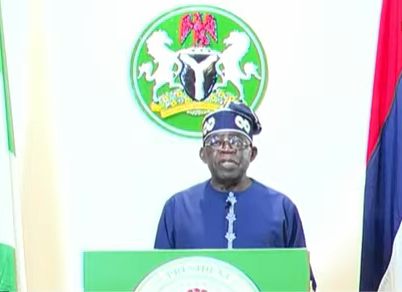It has been 13 long months since career and non-career ambassadors were recalled back to the country without the federal government appointing their replacements.
This leaves Nigeria without full representation in its 109 diplomatic missions comprising 76 embassies, 22 high commissions and one consulate. It would be recalled that President Bola Ahmed Tinubu, on September 2, 2023, recalled 83 ambassadors; requesting the envoys to return to Nigeria by October 31, 2023. The then presidential spokesman Ajuri Ngelale said: “The president is determined to ensure that world-class efficiency and quality will henceforth characterise foreign and domestic services delivery to citizens, residents and prospective visitors’’.
Lack of full diplomatic representation in the rank of ambassadors in the country’s missions abroad after serving envoys were recalled has continued to give well-meaning citizens some concern. While every administration reserves the right to recall, appoint or re-appoint persons it finds credibly qualified enough to represent her in other countries of the world, the attempt to exercise this right should not in any form be at the detriment of the country. So many things are wrong with Nigeria’s self-isolation from diplomatic and economic engagements abroad; more so at a time when globalisation has irresistibly made the world independent more than ever before. It is dangerous enough for a developing country like Nigeria not to have representations especially in countries where her economic interests hugely reside.
In April this year, President Tinubu approved the appointment of 12 consuls-general (CGs) and five chargés d’affaires (CDAs) to represent Nigeria in 14 countries. With their schedules clearly defined, their administrative limitations may not permit them to carry out specific functions that are exclusively for ambassadors. Beyond that, some host countries of our missions may not be well disposed to engaging CGs and CDAs especially in bilateral talks in the absence of ambassadors.
Given diplomatic protocols and procedures, CDAs who have been running the missions in the absence of ambassadors lack the commensurate weight and authority to meet with the foreign ministers of their host countries. For instance, trade negotiations, which are basically diplomatic in nature, are matters that require the key attention of ambassadors. The absence of follow-ups by ambassadors on signed bilateral agreements with heads of governments of the host countries would have left serious gaps in Nigeria’s foreign space. High-level diplomatic engagements operate in a hierarchical order with ambassadors usually at the head of such interactive interfaces.
As a consequence of its inaction under President Tinubu’s watch, Nigeria has succeeded in consciously lending credence to the public insinuation that it is retreating from the world stage; a highly dangerous position for the future of Nigeria. The damage is even worse in our present circumstance, when placed within the context of a government that keeps reassuring citizens that attracting foreign direct investments is one of its policy thrusts.
In view of the huge loss which Nigeria has already suffered (the enormity of which is better imagined) during this long period that her missions have remained without ambassadors, the government should not have recalled serving envoys back to the country knowing it was not prepared to immediately appoint their replacements.
The spokesperson for the Ministry of Foreign Affairs, Ambassador Eche Abu-Ode, had in June this year said the deployment of ambassadors depended on allocations in a supplementary budget. Yet, it is important for the government to realise that the losses incurred by the country are much higher than any imagined gains that may accrue from the non-appointment of ambassadors. Indeed, the economic, political and other intangible gains of full diplomatic representations in the country’s missions abroad are far greater than the financial burden that is conventionally associated with sustaining diplomats while serving abroad.
At every given opportunity, President Tinubu had reiterated the desire of his administration to deploy far-reaching economic policies in the country, which explains his visits to a number of countries since assuming office. This is besides hosting foreign investors and interests in his office in Abuja.
Recent political developments in the West African sub-region justify calls for the appointment of ambassadors. It is highly disturbing that issues keep emerging now and then on the world’s diplomatic stage while Nigeria’s full diplomatic presence is missing in countries and global organisations that it relates with.
Given Nigeria’s strategic position at the regional and continental levels, the endless delay in the appointment of new ambassadors for the country is unacceptable. It is time to end the running of Nigeria’s diplomatic missions abroad at less than full strength as this negatively affects the country’s image in the comity of nations. As earlier echoed in our measured opinion on this page on April 17, 2024, we are still calling on President Tinubu to hasten to conclude all processes that would ensure the country’s full diplomatic representation in the country’s missions abroad. Nigeria needs ambassadors.

 Join Daily Trust WhatsApp Community For Quick Access To News and Happenings Around You.
Join Daily Trust WhatsApp Community For Quick Access To News and Happenings Around You.

